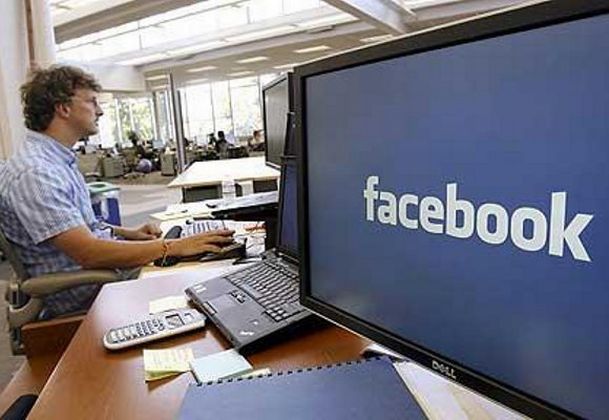I understand the positives, for sure: there are 1.35 billion people on Facebook, so there’s a lot more familiarity with the interface and how to use it than there would be, say, if your company used Slack or something else. (I know companies who roll out things like Slack/Yammer and pretty much explain it to employees as, “Well, it’s like Facebook … for work.”) If they can allow you to share content from competitors of theirs — i.e. Google Docs, Microsoft Office — it could work. But broadly, it seems like a bad idea. Here’s why.
1. Little-known fact outside of Silicon Valley: one of the main guys associated with Facebook at Work is Lars Rasmussen, the engineering director at Facebook. Previously, he worked at Google — poaching! — and was associated with Google Wave, one of Google’s more notable failures whose initial concept was “what e-mail would look like if it was designed today.”
2. Wrote a little bit about this yesterday, but many people view Facebook as a personal concept. For Baby Boomers, especially — who still mostly run the work force, outside of maybe San Francisco and Seattle — there’s a key distinction between work and personal. Phrased another way, they’re comfortable going on Facebook looking at their nephew’s soccer tournament. Do they necessarily want to be on there getting ad-sales reports from an underling?
3. Even people of pre-Boomer age are worried/cognizant about the overlap of “social media” and “work.” I started my current job in July; I work on a floor that’s predominantly female (a good thing, IMHO) and the one other guy in my area friended me on Facebook probably around mid-August. He de-friended me within 2.2 weeks. His reasoning? “You seem connected to too many other people at work. I don’t want to get involved in that.” I still have no idea what that means — was I going to share his random updates about DJing? — but people get skittish/nervous about the intersection of Facebook and work, even though probably 1/4 (if not more) of all the cubicles in the world are bringing up Facebook at some point during the day.
4. Doesn’t this seem a little bit like Facebook trying to get extra market share / time on site / whatever in advance of the perceived coming purge from the current teenage generation?
4a. If you’re worried about Facebook going away as a dominant force in your life, don’t worry — it will take time, as all shifts do. And Facebook has a nifty little trick around the much-maligned auto-play video that might further its dominance in the media sphere.
5. One argument you hear in every article about Facebook at Work is “Well, Facebook has been using it internally for years.” No shit. But tech companies differ in personnel and execution and philosophy from a lot of normal companies. (If you ever want to observe this first-hand, get a tech company product person in a room with an NYC finance person and see how they speak to each other. It’s unreal.) Look at this post for some more examples of that.
6. I honestly tend to think people — especially at work — are most comfortable operating with concepts in boxes. Facebook is a “thing you do for fun” or “as a break.” It’s not a place you sit and actually do work. It can take a long time for a human being to change their context or understanding around an issue. Why is there conflict when someone gets promoted to a new role or has new responsibility, at least initially? Because people are still operating in the old mindset, even though their corporate structure just vetted someone up a level. I feel like the same thing would happen around Facebook at Work, broadly-speaking.
7. How many awkward small-talk moments will result in the next 18 months by someone saying to someone else, “Well, I’m on Facebook … but work endorses it!” or some variation of that joke/comment/line. I hate people sometimes.
